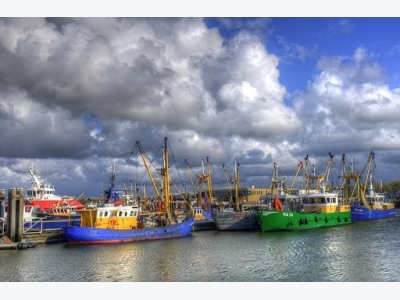Model provides fisheries with solution to overharvesting

Model developed that allows fisheries to net enough to meet rising consumer demand while ensuring adequate income and replenishment of natural stocks.
Consumer demand and inadequate scientific information have led to overharvesting of fisheries, reducing fish species and fish stocks around the world, but University of Guelph researchers have identified a possible solution.
They have developed a model that allows fisheries to net enough to meet rising consumer demand while ensuring adequate income and replenishment of natural stocks. The research was published in Proceedings of the National Academy of Sciences.
"We know fish are getting rarer," said John Fryxell, a integrative biology professor at the University of Guelph and lead author of the paper.
Many commercial fisheries are threatened by overharvesting. For example, the collapse of once-abundant cod stocks in the North Atlantic led to Canada imposing fishing moratorium on the species in the 1990s.
Managers and fisheries are hampered by a lack of information, from overall population numbers to data on how fast fish grow and reproduce.
As the global population increases and demand for fish protein rises — particularly in developing countries — more fisheries are chasing smaller fish populations in hopes of recouping higher prices for their efforts. This further threatens fish stocks that are already being overexploited, Fryxell said.
Finding the "sweet spot" — where the world's fisheries can function all the while protecting natural fish stocks — was the goal of the new model.
"It gives fisheries and conservation managers a tool for balancing those competing demands," he said.
They developed the model using information about landed fish catches and prices for any species to determine by how much a given fishery has been overharvested. Basically, the model encourages fisheries to reduce short-term harvests in order to realize higher long-term yields without sacrificing economic return, the announcement said.
"The model is based on the premise that it's just as profitable to have high catches and low prices as high prices and lower catches," Fryxell said.
That strategy also helps ensure a more sustainable fishery over the long term, he added.
Supportive policy changes might include introducing tariffs that make it less profitable to fish low-yielding, high-priced species, or managers might encourage fish farming to provide alternative protein sources and push down prices of wild stocks, he said.
"We'd have a better world where the fishery is making money, and we're feeding more people with more fish in the ocean," Fryxell said.
Co-authors of the paper are integrative biology professor Kevin McCann and other researchers at the University of Guelph, McGill University, the University of Washington and Fisheries & Oceans Canada.
Có thể bạn quan tâm
 Can high-tech bacteria make fish farming more sustainable?
Can high-tech bacteria make fish farming more sustainable? Wild seafood is disappearing rapidly, and many consumers have turned to farmed fish as a way to help reverse the trend.
 Will Fish Farming Overtake Cattle Ranching?
Will Fish Farming Overtake Cattle Ranching? Aquacultural output, growing at 11 percent a year over the past decade, is the fastest growing sector of the world food economy.
 5 ways companies are cleaning up fish farming
5 ways companies are cleaning up fish farming Companies from around the world lead the charge. Here are five ways firms are working to clean up fish farming.